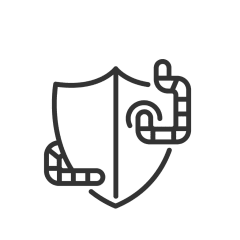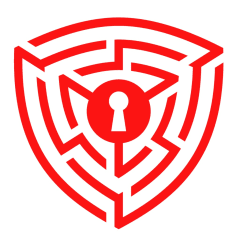The roles of UX (User Experience) designer and web designer share commonalities yet encompass distinct focuses and responsibilities:
UX Designer:
UX designers prioritize optimizing the overall user experience of digital products, including websites and applications. They conduct user research, analyze user behaviors, and create wireframes and prototypes to design intuitive and user-friendly interfaces. Their responsibilities revolve around understanding user needs, defining user journeys, and ensuring that interactions with digital products are efficient, enjoyable, and aligned with user goals. UX designers collaborate closely with stakeholders, including clients, developers, and product managers, to translate user insights into actionable design decisions that enhance usability and satisfaction.
Web Designer:
Web designers specialize in creating the visual and interactive aspects of websites. They focus on crafting layouts, typography, color schemes, and graphical elements to deliver aesthetically pleasing and engaging user experiences. Web designers combine creativity with technical skills to design user interfaces that not only attract attention but also guide users seamlessly through the website's content and functionalities. Their responsibilities encompass conceptualizing design concepts, producing mockups and prototypes, and collaborating with developers to ensure accurate implementation. While web designers may consider usability principles, their primary focus is on the visual and aesthetic aspects of website design.
In summary, while UX designers concentrate on optimizing the holistic user experience, including usability and functionality, web designers primarily emphasize the visual and interactive elements of websites. While there may be overlap in some tasks, such as wireframing and prototyping, each role requires a distinct set of skills and expertise to deliver effective digital solutions.
Related Careers

Incident Responder
An incident responder is a cyber security professional responsible for identifying, investigating, and mitigating security incidents within an organization.

Cryptanalyst
A cryptanalyst is a specialist in the field of cryptography who focuses on analyzing cryptographic systems and breaking codes to decipher encrypted information.

CISO
A Chief Information Security Officer (CISO) is a senior executive responsible for managing and overseeing an organization's information security program.

Security Software Developer
A security software developer is responsible for designing and developing software applications with a strong focus on security.

Cryptographer
A cryptographer specializes in the field of cryptography, which involves the study and practice of secure communication and data protection.

Security Architect
A security architect is a cybersecurity professional responsible for designing and implementing secure systems, networks, and applications to protect an organization's digital assets from cyber threats and attacks.

Penetration Tester
A penetration tester evaluates the security of computer systems, networks, and applications by simulating real-world attacks.

Information Security Director
An information security director is responsible for leading and overseeing the information security function within an organization.

Digital Forensics Analyst
Digital forensics analysts investigate and analyze digital evidence to uncover information related to cybercrime, data breaches, or other digital incidents.

Red Teamer
A red teamer specializes in conducting adversarial simulations and assessments of an organization's security measures, with the goal of identifying vulnerabilities and weaknesses.

Blue Teamer
Blue teamers are cybersecurity professionals who specialize in defensive security measures and strategies.

SOC Manager
A Security Operations Center (SOC) manager is responsible for overseeing the day-to-day operations and strategic direction of a SOC.

Security Engineer
A security engineer is responsible for safeguarding an organization's information technology infrastructure and data from potential threats, vulnerabilities, and cyberattacks.

Ethical Hacker
An ethical hacker is a cybersecurity professional who is hired by an organization to identify and fix vulnerabilities in their computer systems, networks, and applications.

Information Security Analyst
An information security analyst is responsible for safeguarding an organization's computer systems and networks against cyber threats and unauthorized access.

Cybercrime Investigator
A cybercrime investigator is responsible for investigating and combating cybercrimes.

Information Security Manager
An information security manager is responsible for overseeing and managing the information security program within an organization.

IT Security Consultant
An IT security consultant provides expert advice and guidance on information technology security matters to organizations.

